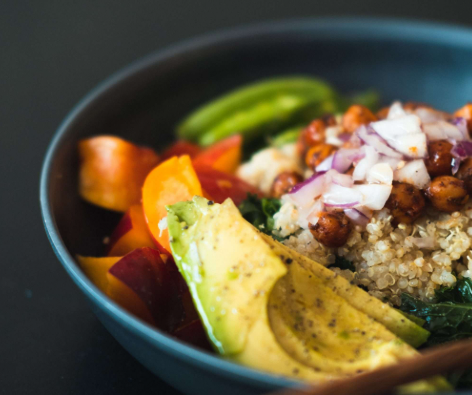
Embarking on a weight loss journey can be challenging, but choosing the right foods can make a significant difference in achieving your goals. Incorporating low-calorie foods into your meals can help you shed unwanted pounds while maintaining proper nutrition and satisfying your taste buds. These foods not only keep you feeling full for longer but also help regulate your energy levels, making weight loss more efficient and sustainable.
In this post, we’ll explore a variety of low-calorie foods that support weight loss and healthy living. You’ll also learn how to integrate these foods into your diet for better results and overall health.
What Are Low-Calorie Foods?
Low-calorie foods are those that provide essential nutrients without excessive calories. These foods are generally high in vitamins, minerals, fiber, and water, while being low in fat and sugar. They are ideal for anyone looking to lose or maintain a healthy weight, as they allow you to eat satisfying portions without consuming too many calories.
By focusing on these nutrient-dense foods, you can create a calorie deficit, which is vital for weight loss. Additionally, they help manage hunger, reducing the likelihood of overeating.
Benefits of Low-Calorie Foods for Weight Loss
Incorporating low-calorie foods into your daily meals offers several benefits for weight loss:
- Weight Control: Low-calorie foods allow you to eat more while still maintaining a calorie deficit, making it easier to lose weight.
- Rich in Nutrients: These foods provide essential vitamins and minerals that support overall health while you shed pounds.
- Appetite Control: Many low-calorie foods are high in fiber and water, which helps you feel full and prevents overeating.
- Supports Metabolism: Nutrient-rich, low-calorie foods help maintain a healthy metabolism, facilitating weight loss.
- Improves Health: Alongside weight loss, these foods help lower the risk of chronic diseases, such as heart disease and diabetes, promoting long-term health.
Best Low-Calorie Foods for Weight Loss
When aiming to lose weight, choosing foods that are both nutritious and filling is essential. Here are some of the best low-calorie foods to include in your diet for effective weight loss and improved health:
1. Leafy Greens
Leafy greens like spinach, kale, and lettuce are some of the best low-calorie options you can add to your meals. Not only are they low in calories, but they are packed with vitamins A, C, and K, fiber, and essential minerals. Their high water content helps you stay hydrated and full.
How to Include Them: Add leafy greens to salads, smoothies, or stir-fries, or use them as a base for wraps and sandwiches.
2. Cruciferous Vegetables
Cruciferous vegetables, such as broccoli, cauliflower, and Brussels sprouts, are low in calories and high in fiber. They help with digestion and provide antioxidants that support overall health.
How to Include Them: Roast, steam, or stir-fry cruciferous vegetables, or incorporate them into soups and salads.
3. Cucumbers
Cucumbers are incredibly low in calories and packed with water, making them a perfect hydrating snack. They also contain antioxidants that benefit your skin and reduce bloating.
How to Include Them: Slice cucumbers for a refreshing snack, add them to salads, or use them in infused water for extra hydration.
4. Zucchini
Zucchini is another low-calorie, nutrient-packed vegetable. It’s high in fiber, vitamin C, and potassium, making it a great addition to your weight loss diet.
How to Include Them: Grill, sauté, or roast zucchini, or spiralize it into “zoodles” as a low-calorie pasta alternative.
5. Berries
Berries such as strawberries, blueberries, and raspberries are low in calories but high in antioxidants and fiber. These fruits promote digestion and help keep you full.
How to Include Them: Enjoy berries fresh, blend them into smoothies, or top them on yogurt or oatmeal for a nutritious snack.
6. Tomatoes
Tomatoes are not only low in calories but also rich in vitamin C and antioxidants. Their high water content helps with hydration and appetite control.
How to Include Them: Add fresh tomatoes to salads, sandwiches, or wraps. You can also use them to make homemade salsas or sauces.
7. Apples
Apples are high in fiber and water, making them a satisfying and filling snack. They also provide essential nutrients like vitamin C and potassium.
How to Include Them: Enjoy apples as a snack, slice them into salads, or pair them with a small amount of nut butter for extra protein.
8. Greek Yogurt
Greek yogurt is a great source of protein and calcium, offering fewer calories than regular yogurt. It also supports digestion through probiotics.
How to Include It: Enjoy Greek yogurt as a snack, mix it into smoothies, or use it as a substitute for sour cream in recipes.
9. Carrots
Carrots are low in calories, high in fiber, and packed with beta-carotene, which promotes eye health. They are a crunchy and satisfying snack.
How to Include Them: Snack on raw carrots, add them to salads, or use them in soups. You can also roast them for a tasty side dish.
10. Lean Protein Sources
Incorporating lean protein sources like skinless chicken, turkey, tofu, and fish into your meals helps you stay full without consuming excess calories. Protein is essential for muscle maintenance and overall health.
How to Include Them: Add lean protein to salads, wraps, stir-fries, or enjoy it as a main course with vegetables.
How to Add Low-Calorie Foods to Your Diet
Now that you know which low-calorie foods are beneficial for weight loss, here are some practical tips for including them in your diet:
- Start with Small Changes: Begin by swapping high-calorie foods with low-calorie options. For example, replace regular pasta with zucchini noodles or white rice with cauliflower rice.
- Meal Prep: Plan and prepare your meals in advance to make healthier choices and avoid high-calorie snacks.
- Practice Portion Control: Even with low-calorie foods, it’s important to practice moderation. Eating in balanced portions will help you stay on track with your weight loss goals.
- Combine for Fullness: Pair low-calorie foods with healthy fats and lean protein to create satisfying, balanced meals.
- Stay Hydrated: Drink plenty of water throughout the day to help control hunger and prevent overeating.
Conclusion: The Role of Low-Calorie Foods in Weight Loss
Incorporating low-calorie foods into your daily routine can help you achieve your weight loss and health goals. By focusing on nutrient-dense foods like leafy greens, lean proteins, and hydrating fruits, you can create a sustainable and balanced diet that supports your weight management journey. Whether it’s adding zucchini to your pasta or snacking on berries, there are plenty of delicious, filling options to choose from.
By making mindful food choices and staying committed to your goals, you can lose weight while improving your overall health and well-being.










